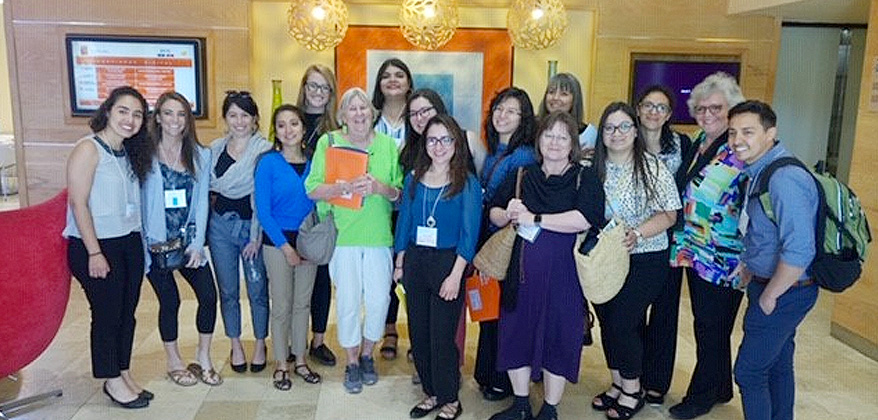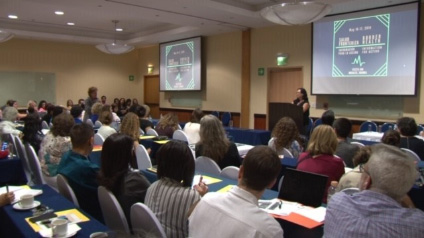Conference Chair Jill de Zapien (green) with students and staff from the UA Mel and Enid Zuckerman College of Public Health.
More than 150 people attended the 10th Annual Border Health: Information for Action conference in Nogales, Sonora, Mexico May 16-17. The two-day conference brought together public health professionals from both sides of the U.S.-Mexico border to share their work, ideas, and explore innovative ways to work together to strengthen binational collaboration in the Arizona-Sonora region.
The conference was hosted by the Southeast Area Health Education Center and coordinated by the faculty, staff and students from the University of Arizona Mel and Enid Zuckerman College of Public Health.
Interest in this year’s conference was so high that promotion of the event was not necessary to attract attendees, according to Jill de Zapien, director of Border and Binational Public Health Research at the UA Zuckerman College of Public Health and conference chair.
De Zapien is the former associate dean of community programs at the UA College of Public Health, a position she held for 16 years before retiring in 2018. She has been involved in community based public health interventions, policies and research in Arizona and throughout the Southwest and Mexico for more than 30 years.
The major objectives of the conference were:
- To provide a forum and space for interaction and dialogue about border health assets and challenges among researchers, practitioners, governmental programs and community based organizations.
- To identify and share the programs, policies, research and community activities in the border region that address the health and wellbeing of border communities.
- To strengthen the network of community based organizations, governmental programs, and academic programs and research.
- To contribute to community solutions in creating health equity in the region.
The following organizations contributed in kind and direct support for this event:
Arizona Prevention Research Center, University of Arizona
Agnese Nelms Haury Program in Environment and Social Justice, University of Arizona
University of Arizona College of Nursing Global Health Advances
Northern Arizona University Center for Health Equity
Arizona State University School of Transborder Studies
Southeast Arizona Area Health Education Center
El Colegio de Sonora, Centro de Promoción de la Salud del Norte de México
Universidad de Sonora Departamento de Enfermería
Universidad del Valle de México
Arizona Department of Health Services, Office of Border Health
Centro de Investigación en Alimentación y Desarrollo, A.C.
University of Arizona College of Medicine Global Health
Universidad del Valle de México
University of Arizona, Mel and Enid Zuckerman College of Public Health
Red Temática Binacional en Salud Fronteriza
El Colegio de la Frontera Norte










